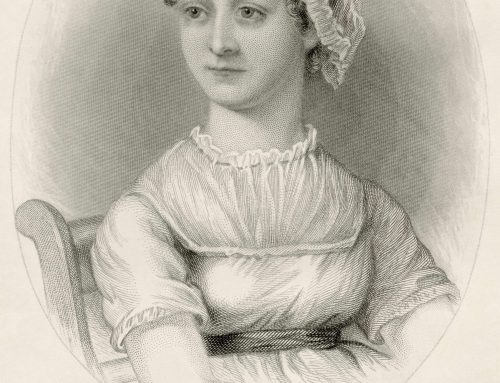Is equality of opportunity ever achievable without tighter regulations on targeted marketing?
– Is there more we can do to protect the vulnerable?
Is equality of opportunity ever achievable without tighter regulations on targeted marketing?
– Is there more we can do to protect the vulnerable?
Is equality of opportunity ever achievable without tighter regulations on targeted marketing? – Is there more we can do to protect the vulnerable?

Nicola Hughes
Nicola is a Theology graduate from the University of Manchester with an MSc in Business.
She is currently working as a programme manager for a large tech firm and is a volunteer for Care4Calais
For every student studying business since 1980 Kotler and Armstrong’s Principles of Marketing has been a necessary purchase – Marketing as an industry is constantly changing and in an unsurprisingly business savvy way K&A regularly updated the ‘’Marketing Bible” so students couldn’t borrow outdated copies from the library. I didn’t have the same problem while studying Theology.
Despite the extravagant purchase of this hallowed book, in 2010 it was, more often than not, used by students to prop the window open while they smoked out of their shared flats. These days I imagine students use the book to prop up their LED Ring Light to create their best Instagram post. Ignoring the increasingly inventive ways that students get their money’s worth from the book instead of reading it, the content has drastically changed in just ten years. In 2010 the Principles of Marketing had just three pages dedicated to digital marketing technologies. Online marketing had only 18 pages, mostly focused on SPAM emails and Amazon was mentioned just twice in the whole book, referred only to as an ‘advertiser’.
Things have changed; the 2020 edition is advertised, on Amazon, as being ‘packed with stories illustrating how companies use new digital technologies to maximize customer engagement and shape brand conversations, experiences and communities.’ Data centric, digitally driven companies have propelled us into a new era where being a known brand is not enough. Companies have had to evolve the way they market, position and produce products to retain market share. But more than this, these changes have also impacted the way consumers relate to businesses, driving drastic changes in the way businesses in turn communicate and interact with customers.
Back in 2010, in what could now be seen as the ‘advent’ of digital marketing and studying business for the first time, I was fascinated to learn about the potential for companies to use data that was already being gathered, better to target consumers. However, as a newly graduated Theologian I instinctively wanted to explore the potential shortcomings of such data driven, customer centric campaigns. Surely, the advancements in targeted marketing, although seemingly beneficial to the consumer, could unwittingly discriminate against consumers who didn’t fit the ‘targeted demographic’.
It being in my nature to challenge what I view as unfair practices I regularly stated that any application of targeted marketing should be scrutinised by an ethics committee. This would help to avoid it unscrupulous means, influencing both individual and public opinion, maybe even swinging elections. Knowing full well I was suggesting we were heading for a dystopian Orwellian future, I never actually expected to see these concepts realized, certainly not within my lifetime.
The Advertising Standards Authority (ASA) has latterly responded to increased targeted and affiliate marketing, ensuring better regulation of social media advertising, especially that aimed at young people. Social media platforms have been quick to implement technology that appears to flag extremist content or ‘fake news’ especially since the onset of the recent Covid pandemic. Any social media post that mentions certain key words such as ‘pandemic’ ‘COVID’ or ‘vaccine’ as well as other variations on the theme are automatically accompanied with links to ‘genuine scientific’ information from legitimate government authorities and healthcare providers. The ease by which these proactive steps to target specific thought sharing have been implemented, although somewhat frightening, does pose the question of how these same technologies can be used constructively for the greater good.
There are of course many companies and organisations helping consumers to be more discerning online. At times they may be effective in promulgating truth and social consciousness. However, it’d be naïve to expect the media agencies of today to favour any activity that doesn’t increase profitability.[1]
In addition to campaigning for better regulations to address the negative impacts of some targeted marketing, it should be recognized that such advertising could be used as a force for good – to meet people where they are and support them in their needs.
In 2019 the Bishop of St Albans[2] raised a motion in the General Synod of the Church of England that aimed to reduce the ‘quantity and persuasiveness’ of gambling adverts online. Noting that a ‘huge social change’ in the gambling industry over the past 15 years, directly attributed to online advertising, had resulted in 55,000 children in the UK being identified as problem gamblers.
The motion was overwhelmingly supported by the Synod and the following was presented to the Government –
That this Synod, noting the greatly increased levels of gambling advertising and research showing significant levels of gambling by children:
a) call on Her Majesty’s Government to reduce the quantity and pervasiveness of gambling advertising and introduce a mandatory levy on gambling firms to fund
independently commissioned research, education, and treatment programmes;
b) encourage churches to be an open place for people who have problems with gambling to seek support; and
c) ask churches to support initiatives which educate children and young people about risks related to gambling.
“You have to meet people where they are and sometimes you have to leave them there”[3] To this might be added, ‘not where we want them to be’. In the above Synodical example – the research has been done – we know where those who need help are, we know how to meet them in their place.
As a further example, without a reasonable understanding of tech and internet cookies, it is difficult for a problem online gambler to use the internet without being met with repeated adverts encouraging them to continue gambling. In this the Church and other organisations should use analytical technology to counteract the negative messages to those who need it.
The concept of equal opportunity or even true equity, necessitates that each individual is presented with the information, access and support that they require in order to reach their full potential. However, the contrary lies with the way that personal data is now applied to curate the messages we see, thus there is an increasing lack of equity across demographics.
The Church, with its moral duty to prevent the vulnerable from being exploited and to fight for justice and equality of all peoples now has a new opportunity by embracing the technological advances that impact society. The same technology that presents a problem gambler with a new promotion for an online casino can also present that same individual with a message of hope. The old has gone the new is here!
February 2022
_________________________________________________________________________
[1] https://www.bbc.co.uk/news/technology-58784615
[2] Alan Gregory Clayton Smith is a British Anglican bishop. Since 2009, he has been the Bishop of St Albans.
[3] Iyanla Vanzant






